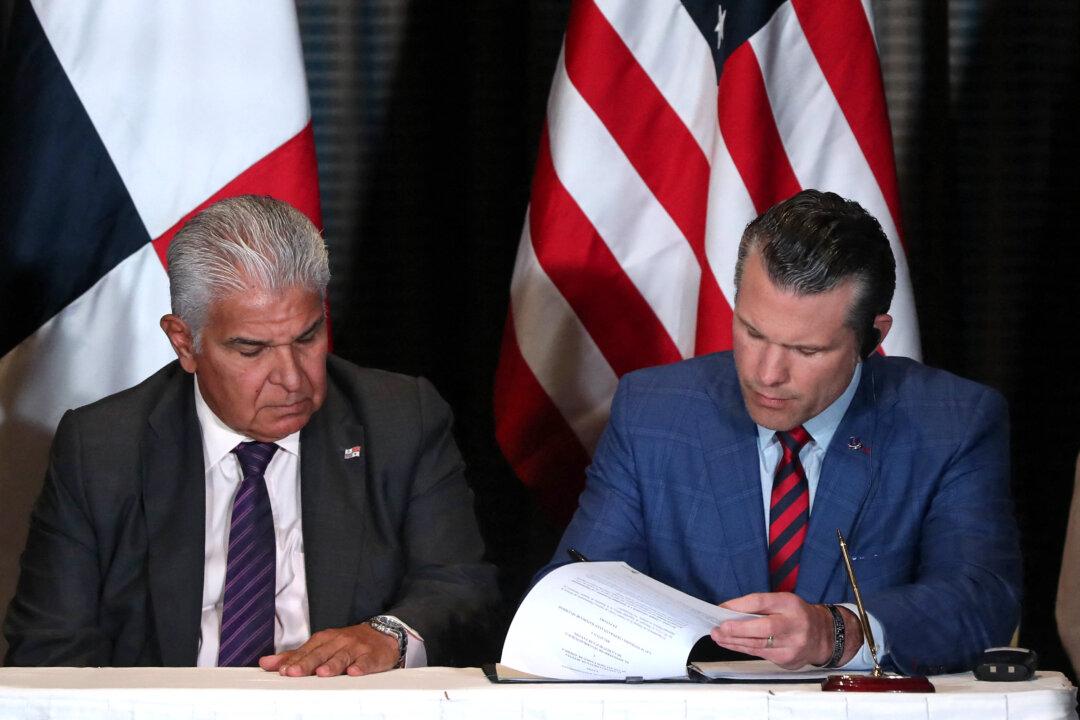Commentary
The Department of Defense hailed a historic set of agreements on April 11 that Secretary of Defense Pete Hegseth negotiated with Panamanian President José Raúl Mulino. The agreements provide enhanced U.S. military access to Panamanian bases, “free and first” access for U.S. naval ships through the Panama Canal, and increased military training between U.S. and Panamanian forces.





